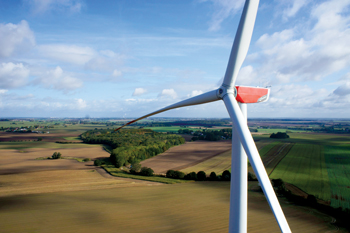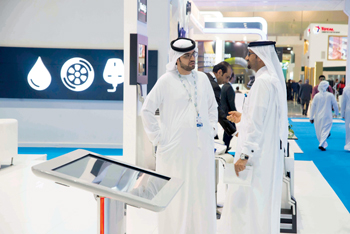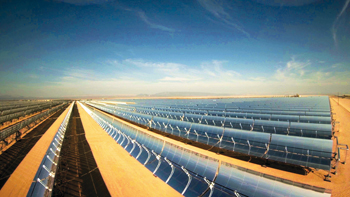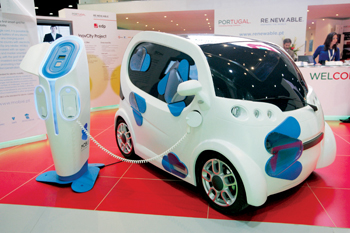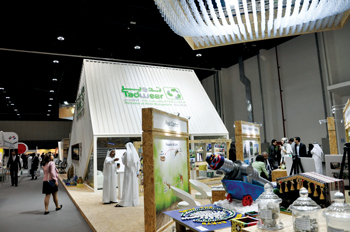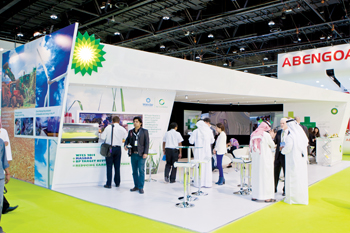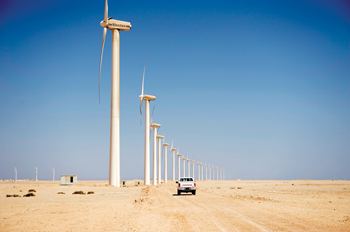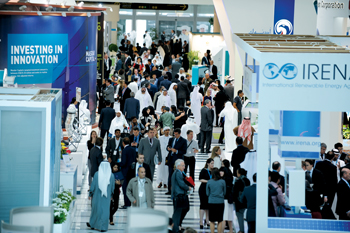
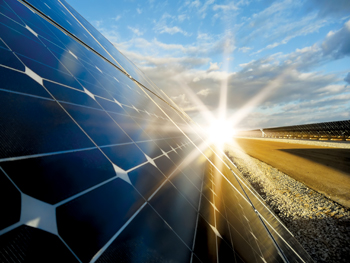 Meeting all stated renewable energy targets in GCC countries would save 4 billion barrels of oil
Meeting all stated renewable energy targets in GCC countries would save 4 billion barrels of oil
Scaling up renewable energy to the level required to meet global climate objectives would contribute to at least 12 of the 17 United Nations Sustainable Development Goals by increasing energy access, improving quality of life and reducing poverty
Emission reductions from renewables, coupled with energy efficiency improvements, must be at the heart of any effort to limit global temperature rise to two degrees Celsius, according to a report released today by the International Renewable Energy Agency (Irena).
REthinking Energy 2015 – Renewable Energy and Climate, finds that achieving a 36 per cent share of renewable energy by 2030 would result in half of all emission reductions needed to maintain a two degree pathway. Energy efficiency measures could supply the rest.
“The energy sector accounts for more than two-thirds of global greenhouse gas emissions, and therefore must be the focus of climate action,” says Adnan Z Amin, Irena director-general. “Transitioning rapidly to a future fuelled by renewable energy, accompanied by increasing energy efficiency, is the most effective way to limit global temperature rise. This transition is underway but it must be accelerated if we are to limit global temperature rise to two degrees Celsius.”
According to the report, scaling up renewable energy to the level required to meet global climate objectives would contribute to at least 12 of the 17 United Nations Sustainable Development Goals by increasing energy access, improving quality of life and reducing poverty.
The renewable energy sector employs 7.7 million people worldwide, creating more jobs per unit of electricity generated than coal or natural gas. If a 36 per cent share of renewables is achieved, employment levels could exceed 24 million jobs by 2030.
To achieve a 36 per cent share of total energy, the uptake of renewable energy would need to increase six-fold from current levels. This would require that global annual investment nearly double, to exceed $500 billion in the period up to 2020, and more than triple to exceed $900 billion from 2021 to 2030.
To help achieve this, the report outlines five actions for a sustainable energy future including: strengthening policy commitments, mobilising investments, building institutional capacity, linking renewables to Sustainable Development Goals and enhancing regional engagement.
“The strong business case for renewable energy has made the energy transition inevitable,” says Amin. “It is now not a question of if the world ultimately transitions to a renewable energy future, but rather whether it will do so quickly enough. At the upcoming climate talks in Paris, it will be up to countries to commit to strong targets, and in turn, give a strong political signal to catalyse further investments in renewable energy.”
REthinking Energy – Renewable Energy and Climate is the second edition in the series outlining progress in the transition to a sustainable energy future. The report was presented at Irena’s 10th Council meeting, taking place from 22 to 24 November in Abu Dhabi. The Council meets twice annually, bringing together roughly 250 participants from more than 80 countries to facilitate cooperation among Members, oversee implementation of the Irena work programme and complete substantive preparations for the Assembly.
Meeting all stated renewable energy targets in GCC countries would save 4 billion barrels of oil and reduce emissions by 1.2 gigatonnes between now and 2030, according to new figures revealed by the Abu Dhabi-based International Renewable Energy Agency (Irena) ahead of the upcoming World Future Energy Summit (WFES).
The soon-to-be released figures equate to 25 per cent less annual fossil fuel consumption in the power and water sector in 2030, and an 8 per cent overall reduction in per capita carbon footprint over the next 15 years. Nearly three-quarters, 74 per cent, of the anticipated 69 gigawatts of renewable energy produced in the GCC will be generated in Saudi Arabia.
The numbers will be published in an upcoming GCC Renewable Energy Market Analysis slated for release at WFES 2016, where global industry leaders, decision-makers, business innovators, and investors will be coming together to seek the increasing market opportunities brought on by the region’s continuous investments in renewable energy.
For policymakers, an important driver behind this anticipated regional shift to renewable energy includes the socioeconomic benefits it will produce. The Irena figures also show that because renewables, in particular solar photovoltaics, can be less water intensive than fossil fuel technologies, reaching targets would reduce consumption by 18 trillion litres, or 20 per cent, of water annually, and create roughly 130,000 direct jobs per year from now until 2030.
Part of Abu Dhabi Sustainability Week and hosted by Masdar, WFES is an annual platform where the best and brightest minds come together to exchange ideas, explore the latest developments, and address challenges in the future energy arena. The event will take place on 18 – 21 January 2016, and is expected to attract more than 30,000 attendees from 170 countries, and 650 exhibiting companies from more than 40 countries.
“The global energy system accounts for some two-thirds of greenhouse gas emissions today. Transitioning rapidly to a global system fuelled by renewable energy is the single most effective way to decarbonize the global economy and keep global temperature rise to 2 degrees Celsius, but the pace and scale of change needs to increase,” says Amin. “Important gatherings like the World Future Energy Summit provide critical platforms for the knowledge-exchange needed today to advance renewable energy in the region and around the world.”








































































